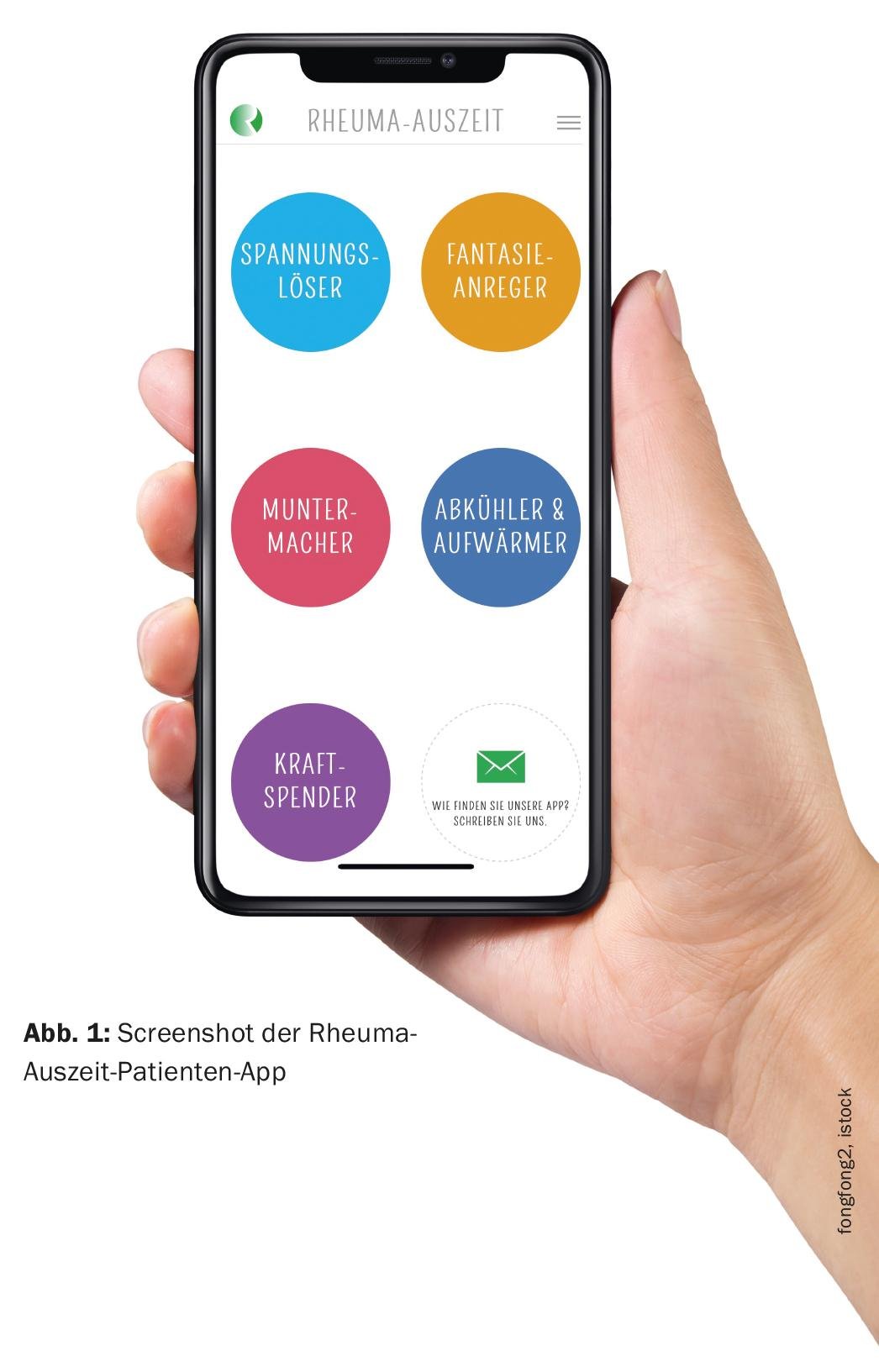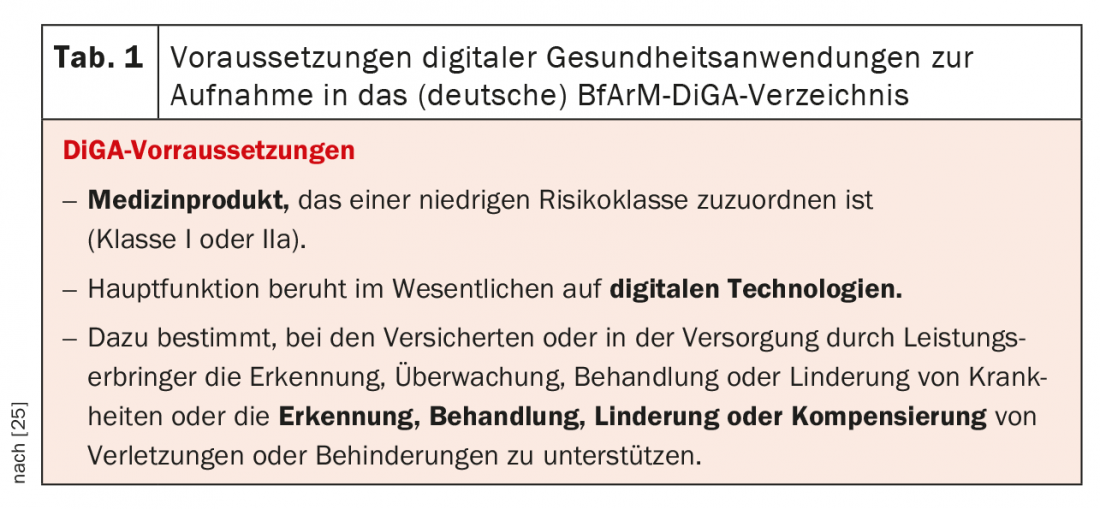It’s not too often that Germany shines with innovation when it comes to digitization in medicine. In the meantime, however, the first digital health applications can be prescribed by our neighbors: Patients are entitled to certain apps. This is just a sign of general progress. There are currently interesting developments in rheumatology in particular.
In order to actively accompany the digitization of German-speaking rheumatology and to bundle activities, the new commission “Digital Rheumatology” of the German Society for Rheumatology (DGRh) was founded [1]. Recommendations for the successful implementation of apps in rheumatology have already been developed by the European League Against Rheumatism (EULAR) [2] and the Young Rheumatology Working Group (AGJR) of the DGRh [3]. The “Digital Rheumatology Network” (www.digitalrheumatology.org), founded by Prof. Thomas Hügle, University Hospital Lausanne, connects all stakeholders and informs about news in digital rheumatology by means of congresses, interviews, lectures and regular contributions.
Evaluation of rheumatology apps
In a 2018 paper by the AGJR [3], German-language rheumatism-specific apps were systematically identified and rated using the Mobile App Rating Scale (MARS) [4]. The app store star ratings correlated poorly with the MARS score and thus do not allow a valid judgment of app quality [3]. Similar to studies of English-language apps for patients with rheumatoid arthritis [5], the quality of the apps was highly heterogeneous, and no efficacy studies of the apps could be identified. Najm, et al. [6] showed in an app review that the most frequently addressed topics were pain (71%), fatigue (47%), and physical activity (47%). The aforementioned reviews have not yet identified a study with evidence of efficacy for patients with inflammatory rheumatic diseases.
Rheumatologists increasingly use apps and social media
A paper by the Arbeitsgemeinschaft Junge Rheumatologie (AGJR) of the Deutsche Gesellschaft für Rheumatologie e.V. (DGRh) showed that in 2018, almost half of rheumatologists (49%) were already using health apps [7] and 68% of rheumatologists planned to use them. Medication apps were used most frequently in 2018. A total of 20 recommended apps were identified, but only two of these were rheumatism-specific apps. A 2017 study by the Emerging European League Against Rheumatism Network (EMEUNET) [8] showed that 71% of rheumatologists surveyed used social media professionally for networking (79%), news (76%), and to receive research updates (48%). The leading platform was Facebook with 91%.
Great willingness to use apps among patients – but hardly any offers?
The widespread availability of smartphones with powerful Internet access makes it possible to provide and rapid implementation of low-threshold DiGA. A patient survey [9] conducted in January 2019 showed that the vast majority of rheumatology patients (91.2%) regularly use smartphones and think that the use of medical apps can be helpful (68.4%). Interestingly, however, medical apps were used by only 4.1% of respondents. With few exceptions, all patients (97.4%) were willing to provide app data for research purposes while respecting privacy [9]. These data could significantly support clinical research because of the ease, continuity, and structure of collection. The study also showed that, in addition to other functions and content, patients particularly want information about the disease, medications and nutrition from an app (top 3 of 16 desired app functions).
Apps as a diagnostic tool
A major problem in the care of rheumatologic patients is the long symptom duration until initial presentation [10]. This is largely due to the lack of specialist appointments. However, studies show that up to two-thirds of initial presentations do not necessarily require a specialist rheumatology assessment appointment [11], because there is no inflammatory rheumatic disease. Useful digital triage tools could help ensure targeted patient management here [12]. In this context, the Spanish Society of Rheumatology, in collaboration with the Spanish Society of Family Physicians, has developed an app [13], which provides a clear diagnostic and referral algorithm to the rheumatologist. In addition to the German start-up Ada Health, whose patient app processes symptoms in a non-specialist manner and determines suspected diagnoses and recommendations for action, there are also several rheumatism-specific or disease-specific apps and EU projects. The EU-funded Joint Pain Assessment Tool (JPAST) combines data from a symptom checker with genetic and serologic data to more accurately calculate individual risk [14]. That this development is still in its infancy was shown, among other things, in a study of English symptom checkers (SC) [15]. For initial patient presentations with rheumatologic complaints, SC correctly identified only 19% (4 of 21) patients with arthritis [15]. For the field of spondyloarthritis, the use of an online self-referral tool for patients could show first positive data [16]. In summary, the performance of digital triage algorithms is expected to improve over time.
Monitoring apps
Various apps [3,7] allow the recording and transmission of patient-reported outcomes (PRO). The majority of patients are willing to spend 15 minutes per weekly data entry [9]. These electronic data offer the possibility of regular site-independent disease monitoring as well as easy transferability and complete documentation. Currently, only 25.5% of German rheumatologists use electronic PROs, according to a recent survey. Switzerland seems to be already much more digitalized here through the “Swiss Clinical Quality Management in Rheumatic Diseases”. In addition to the digital PRO recording, other disease-relevant functions can also be monitored by means of apps. For example, step count measurement was able to detect relapses in patients with rheumatoid arthritis and SpA with high specificity (97%) and sensitivity (96%) in a French study [17]. Other exciting applications, such as measurement of finger swelling using a smartphone [18], objective measurement of spinal mobility in SpA patients [19], and determination of physical activity in myositis patients [20], will certainly find their way into everyday clinical practice.
Apps for treatment and symptom relief
Apps can be used as a supplement to existing therapy. Especially for the treatment of pain [21–23] and depression [24] there are also first good data on the effectiveness of digital offers. For example, in a 12-week randomized controlled trial, the German-language app Kaia provided significantly greater pain reduction compared with six physio-therapy sessions and online educational materials in patients with nonspecific low back pain [21]. In the evaluation of the AGJR [3], the app of the German Rheumatism League, “Rheuma-Auszeit” (Fig. 1), was rated best. The app provides movement and relaxation exercises via audio and video files that patients can use immediately.

Patients have a benefit entitlement for certain apps
In December 2019, the Act for Better Care through Digitization and Innovation (Digital Care Act, DVG) came into force. Together with the Digital Health Applications Ordinance (DiGAV), this gives insureds a benefit entitlement for digital health applications (DiGA) and allows physicians and physiotherapists to prescribe corresponding offerings. Digital health applications are reviewed by the Federal Institute for Drugs and Medical Devices (BfArM) upon application and must meet certain basic requirements (Tab. 1). In particular, positive health care effects must be demonstrated.

A directory maintained by the BfArM provides an overview of all prescribable DiGA. The first DiGA were officially added to the list in October 2020: https://diga.bfarm.de/de/verzeichnis. It is likely that Switzerland and other countries will -establish a similar regulation.
Conclusion for practice
- The majority of patients consider the use of medical apps helpful and are willing to provide data for research purposes.
- Various apps already exist for diagnosis, monitoring and therapy optimization, but there is a lack of studies that prove the benefits.
- The DGRh Commission Digital Rheumatology and the Digital Rheumatology Network were founded to actively accompany the digitization of rheumatology.
Literature:
- Knitza J, Callhoff J, Chehab G, et al.: Position paper of the commission on digital rheumatology of the German Society of Rheumatology: tasks, targets and perspectives for a modern rheumatology. Z Rheumatol 2020.
- Najm A, Nikiphorou E, Kostine M, et al: EULAR points to consider for the development, evaluation and implementation of mobile health applications aiding self-management in people living with rheumatic and musculoskeletal diseases. RMD Open 2019; 5(2): e001014.
- Knitza J, Tascilar K, Messner EM, et al: German Mobile Apps in Rheumatology: Review and Analysis Using the Mobile Application Rating Scale (MARS). JMIR mHealth and uHealth 2019; 7(8): e14991.
- Stoyanov SR, Hides L, Kavanagh DJ, et al: Mobile app rating scale: a new tool for assessing the quality of health mobile apps. JMIR mHealth and uHealth 2015; 3(1): e27.
- Grainger R, Townsley H, White B, et al: Apps for People With Rheumatoid Arthritis to Monitor Their Disease Activity: A Review of Apps for Best Practice and Quality. JMIR mHealth and uHealth 2017; 5(2): e7.
- Najm A, Gossec L, Weill C, et al: Mobile health apps for self-management of rheumatic and musculoskeletal diseases: systematic literature review. JMIR mHealth and uHealth 2019; 7(11): e14730.
- Knitza J, Vossen D, Geffken I, et al: Use of medical apps and online platforms among German rheumatologists: Results of the 2016 and 2018 DGRh conference surveys and research conducted by rheumadocs. Z Rheumatol 2018.
- Nikiphorou E, Studenic P, Ammitzbøll CG, et al: Social media use among young rheumatologists and basic scientists: results of an international survey by the Emerging EULAR Network (EMEUNET). Annals of the rheumatic diseases 2017; 76(4): 712.
- Knitza J, Simon D, Lambrecht A, et al: Mobile Health in Rheumatology: A Patient Survey Study Exploring Usage, Preferences, Barriers and eHealth Literacy. JMIR mHealth and uHealth 2020.
- Raza K, Stack R, Kumar K, et al: Delays in assessment of patients with rheumatoid arthritis: variations across Europe. Annals of the rheumatic diseases 2011; 70(10): 1822.
- Feuchtenberger M, Nigg AP, Kraus MR, et al: Rate of Proven Rheumatic Diseases in a Large Collective of Referrals to an Outpatient Rheumatology Clinic Under Routine Conditions. Clin Med Insights Arthritis Musculosskelet Diord 2016; 9(1179-5441 [Print]): 181-187.
- Hirsch MC, Ronicke S, Krusche M, et al: Rare diseases 2030: how augmented AI will support diagnosis and treatment of rare diseases in the future. Annals of the rheumatic diseases 2020: annrheumdis-2020-217125.
- Urruticoechea-Arana A, León-Vázquez F, Giner-Ruiz V, et al.: Desarrollo de una aplicación para teléfonos móviles (app) basada en la colaboración Sociedad Española de Reumatología/Sociedad Española de Medicina de Familia y Comunitaria para derivación de enfermedades autoinmunes sistémicas. Reumatología Clínica 2019.
- Knitza J, Knevel R, Raza K, et al: Toward Earlier Diagnosis Using Combined eHealth Tools in Rheumatology: the Joint Pain Assessment Scoring Tool (JPAST) Project. JMIR mHealth and uHealth 2020 (2291-5222 (Electronic)).
- Powley L, McIlroy G, Simons G, et al: Are online symptoms checkers useful for patients with inflammatory arthritis? BMC musculoskeletal disorders 2016; 17(1): 362.
- Proft F, Spiller L, Redeker I, et al: Comparison of an online self-referral tool with a physician-based referral strategy for early recognition of patients with a high probability of axial spa. Seminars in Arthritis and Rheumatism 2020; 50(5): 1015-1021.
- Gossec L, Guyard F, Leroy D, et al: Detection of flares by decrease in physical activity, collected using wearable activity trackers, in rheumatoid arthritis or axial spondyloarthritis: an application of machine learning analyses in rheumatology. Arthritis care & research 2018.
- Mollard E, Michaud K.: A Mobile App With Optical Imaging for the Self-Management of Hand Rheumatoid Arthritis: Pilot Study. JMIR mHealth and uHealth 2018; 6(10): e12221.
- Kiefer D, Baraliakos X, Bühring B, et al: Epionics SPINE – Application of an objective examination method of spinal mobility in patients with axial spondyloarthritis. Journal of Rheumatology 2019.
- Oldroyd A, Little MA, Dixon W, et al: A review of accelerometer-derived physical activity in the idiopathic inflammatory myopathies. BMC Rheumatology 2019; 3(1): 41.
- Toelle TR, Utpadel-Fischler DA, Haas KK, et al: App-based multidisciplinary back pain treatment versus combined physiotherapy plus online education: a randomized controlled trial. npj Digital Medicine 2019; 2(1): 34.
- Kristjánsdóttir ÓB, Fors EA, Eide E, et al: A Smartphone-Based Intervention With Diaries and Therapist-Feedback to Reduce Catastrophizing and Increase Functioning in Women With Chronic Widespread Pain: Randomized Controlled Trial. Journal of medical Internet research 2013; 15(1): e5.
- Paganini S, Lin J, Kählke F, et al: A guided and unguided internet- and mobile-based intervention for chronic pain: health economic evaluation alongside a randomised controlled trial. BMJ Open 2019; 9(4): e023390.
- Paganini S, Teigelkötter W, Buntrock C, et al: Economic evaluations of internet- and mobile-based interventions for the treatment and prevention of depression: A systematic review. Journal of Affective Disorders 2018; 225: 733-755.
- BfArM. Digital Utilities Act of 2019 [Available from: www.bfarm.de/DE/Medizinprodukte/DVG/_node.html].
InFo PAIN & GERIATURE 2020; 2(2): 31-33.











